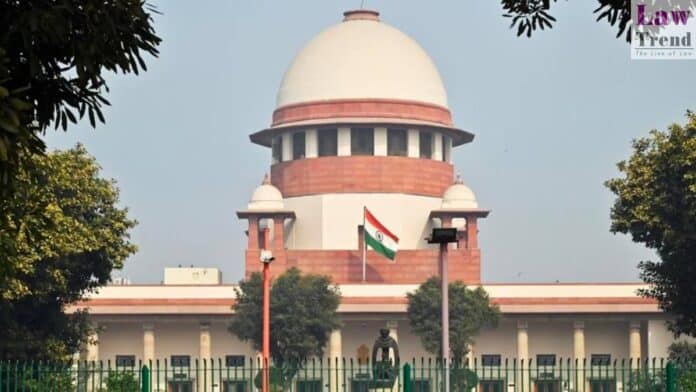The Supreme Court said on Thursday the Delhi Development Authority (DDA) and other bodies concerned cannot permit the pavement abutting a metro train depot to be used for a purpose other than allowing people to walk.
The apex court, which took note of the photographs of a metro depot while adjudicating a matter related to land acquisition, observed that a part of pavement abutting the facility has been occupied by a ‘car clinic’ and other vendors. The depot stands on land acquired by a private person.
“A citizen has lost his valuable property by way of compulsory acquisition. The compulsory acquisition has been made for a public purpose and therefore, the appellant (DDA) and all the concerned authorities cannot allow the pavement to be used for any purpose except for allowing people to walk,” a bench of Justices A S Oka and Sanjay Karol said in its verdict.
The bench expressed hope and trust that either the DDA will take immediate action or call upon the authorities empowered to do so in accordance with the law.
It said the DDA and other authorities concerned shall take serious note of the observations made by the top court and take necessary action.
The bench was dealing with an appeal filed by the DDA against a 2016 judgement of the Delhi High Court in a matter related to land acquisition.
In its verdict, the high court had held that sub-section (2) of section 24 of the Right to Fair Compensation and Transparency in Land Acquisition, Rehabilitation, and Resettlement Act, 2013 will apply as compensation has not been paid to the man who had questioned the acquisition of his land despite the DDA having taken the physical possession.
It noted the high court verdict records that the acquired land has been utilised for the Delhi Metro Rail Corporation (DMRC) for its car maintenance depot at Kalindi Kunj under the MRTS (Mass Rapid Transit System) project (phase -III).
The bench said, in its February 23 order, it had directed the DDA to file on record the present status of the acquired land.
It said the photographs were also placed on record along with the affidavit filed in April this year.
The bench also dealt with the question of whether the delay of 1,231 days in approaching the top court in appeal should be condoned.
“Over the years, this court has repeatedly held that a liberal and justice -oriented approach needs to be adopted in the matters of condonation of delay so that the substantive rights of the parties are not defeated only on the ground of delay,” it said.
Also Read
The bench noted the contention that the decision on which the high court judgment was based was overruled is by itself no ground to condone a long delay.
“The use of the land for public purposes for the last several years is certainly a relevant factor for adopting a liberal approach while considering the prayer for condoning the delay,” it said.
Observing that the application for condonation of delay was drafted “rather casually”, the bench said considering the peculiar facts of the case, by adopting a justice-oriented and liberal approach, the delay will have to be condoned.
“Though, the appeal succeeds, considering the conduct of the appellant, we saddle the appellant with costs of Rs 50,000,” it said, while allowing the appeal.




